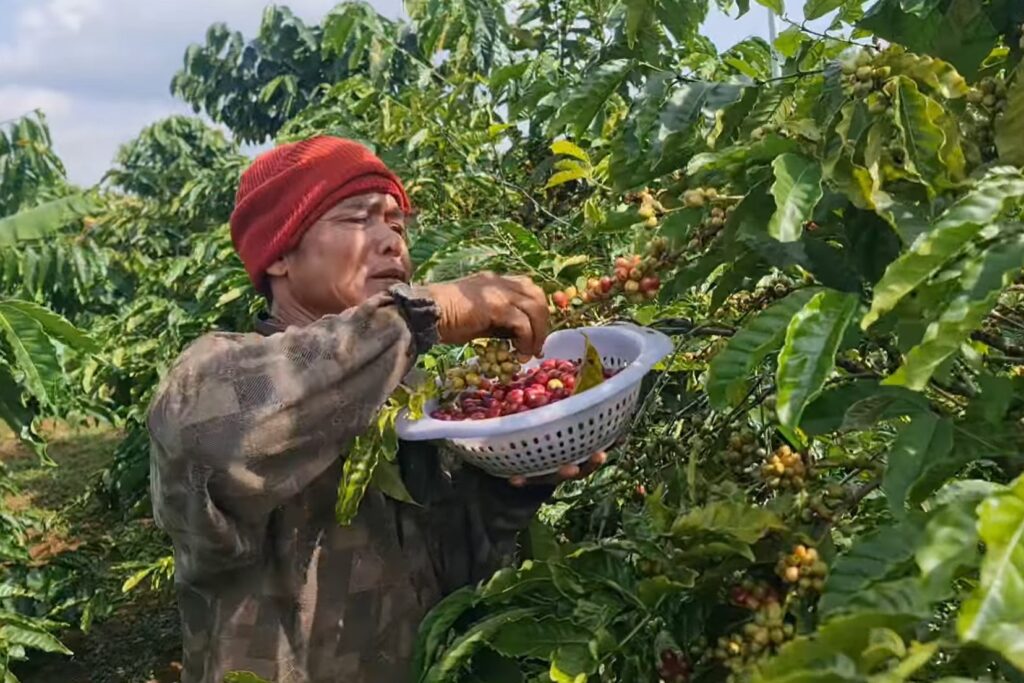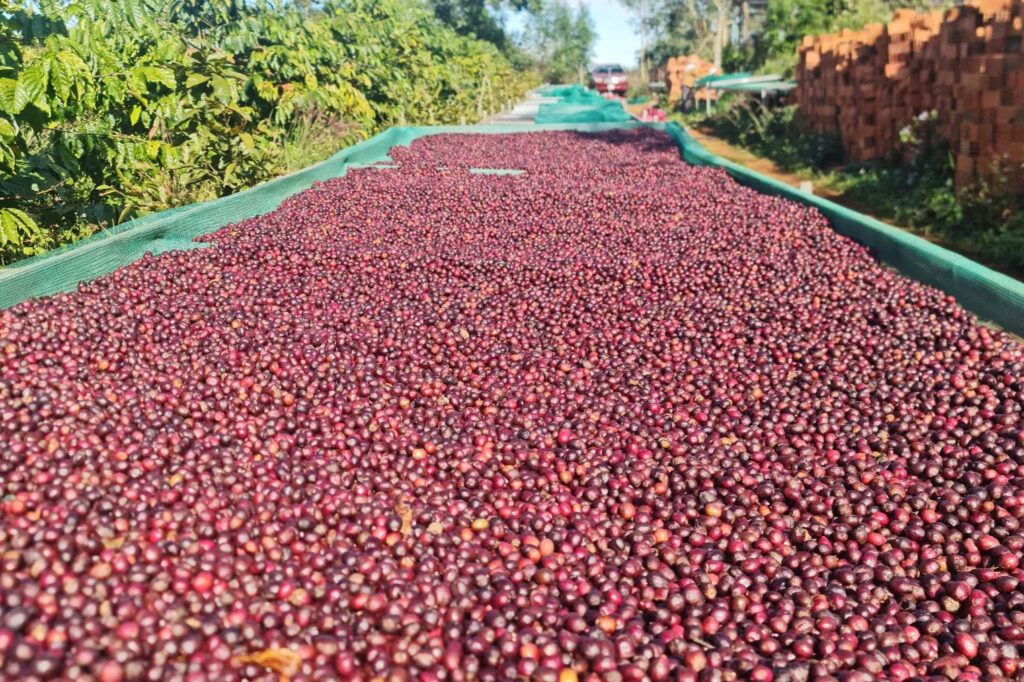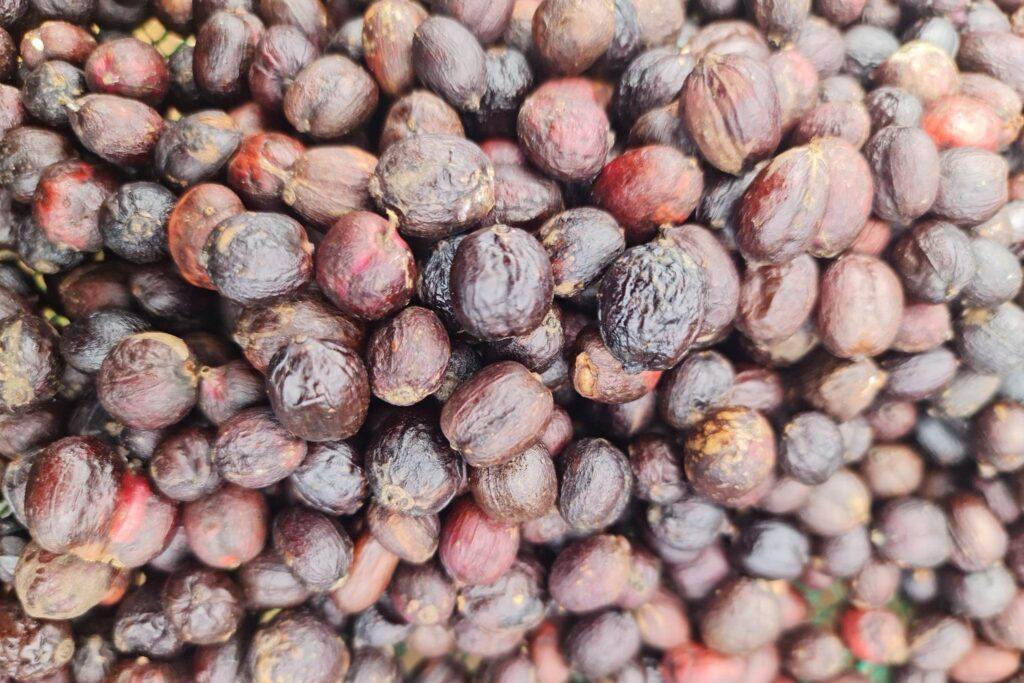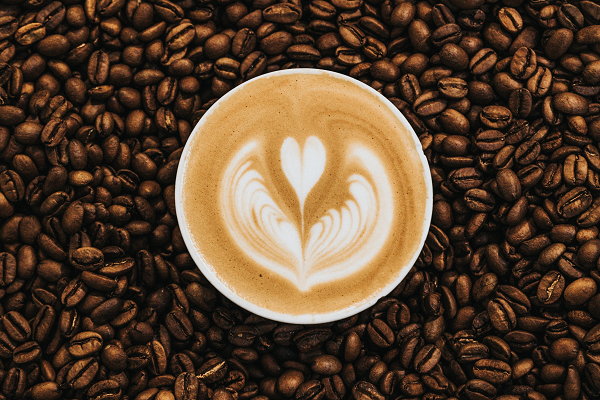
Robusta Coffee on Red Basaltic Soil - Gia Lai, Central Highlands of Vietnam
Vietnam is the second largest coffee producer in the world, only after Brazil. Almost all of the production in Vietnam is comprised of the Robusta species. Vietnam primarily produces Robusta coffee. In fact, 95% of all the coffee made in Vietnam is Robusta with just 5% being Arabica.
Most of Vietnam’s coffee is grown in the Central Highlands. This region has a milder climate than the lowlands and has rich red basaltic soil that is amazingly fertile, providing the perfect conditions for growing coffee. The speedy growth of Robusta contributes to high caffeine with more pronounced bitter taste.

What Special about Vietnamese Robusta?
Vietnamese Robusta are grown from an altitude of 700m above sea level with extraordinarily high-quality output in the Central Highlands in Vietnam, such as Gia Lai, Dak Lak, Lam Dong.
High air humidity in the region is suitable for coffee trees to grow. The tropical climate has two seasons: rainy and dry. The low rainfall help reduce the growth of many types of insects. The significant difference of high and low temperature between day and night, i.e. hot sunny days, chilly nights, makes coffee grown in this area taste much better.
The most favorable characteristic of the Central Highlands is red basaltic soil. The soil has more than 80% basalt with fertile, fresh, and phosphorous characteristics that are suitable for developing industrial crops, especially coffee trees.
Because of the favorable soil characteristics, farmers can save cost of buying fertilizer or watering for coffee trees to grow, as a result, coffee price here is much more competitive. Along with that are the experience of growing coffee that many generations of people in the Central Highlands have produced delicious and quality Robusta coffee beans.

Bean Classification
Each coffee fruit has multiple layers: the outer skin (pulp) or exocarp; the mucilage or mesocarp, a soft, sticky layer that contributes significantly to the sweetness of the coffee; a papery layer or endocarp known as parchment; and the silver skin, a membrane that encases the two seeds.
There are three methods of coffee processing commonly used today, dry processing, wet processing, and honey processing.
- Washed Processed Coffee
- Natural/Dry Processed Coffee
- Honey/Pulped Natural Coffee
Grading by bean size is increasingly used, that is, after drying, it will be measured by perforated metal plates of various sizes, ranging from 8 to 20/64 inches. For example, sieve 18 indicates 18/64 inches, while sieve 16 is 6.3mm when measured in mm. The beans that remain on the 18/64 inch sieve after placing a handful of coffee beans on it are known as sieve 18, whereas the beans that fall through and land on the 16/64 inch sieve are known as sieve 16. Due to the high density, some particles are small but cannot fall. As a result, the Specialty Coffee Association permits a 5% deviation from sieve measurements, that is, in 100 beans on sieve 18, there are allowed five smaller or larger beans.

Taste and Flavor
Robusta has a strong taste with a grainy overtone and a rich, peanut-like aftertaste. The taste of Robusta coffee ranges from neutral to very bitter. The flavor of Robusta coffee is distinctive. Unroasted Robusta coffee will smell like fresh peanuts, and when it is roasted with pure wood, there will be a light aroma.
When being treated with care and roasted correctly, high-quality Robusta beans can produce a great cup of coffee. Vietnam has uniquely coffee brewing method that brings out a rich and delicious taste, which is filter coffee. Vietnamese filter coffee is made in a single-serve using a small metal filter called a phin. The phin has a cup, a filter chamber and a lid. The phin is placed on top of a small glass cup. The cup of the filter is then filled with coarsely ground Robusta and boiling water.
Coffee was introduced to Vietnam in colonial times and has since become one of its most important cash crops. It has also become an integral part of Vietnamese culture.

Looking for Robusta from Vietnam and need a Trusted Partner?
Contact us at hello@fcare.asia
Address: No 15/8, Lieu Giai Street, Ba Dinh District, Hanoi, Vietnam.
Farmer Care Asia – a member of FHH Ventures.
